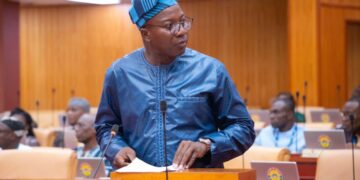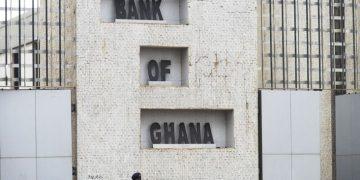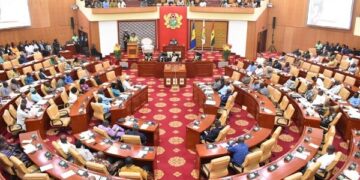Honourary Vice President of IMANI Africa, Bright Simons, has bemoaned the chronic debt distress facing Ghana’s central government, attributing it to what he describes as the country’s under-politicisation of public policy.
In a detailed analysis shared on social media, Mr Simons argued that Ghana lacks a crucial bridge between policy and politics, resulting in zero accountability for debt-related policies at the central government level.
“In Ghana, there is simply no bridge between policy and politics. The policy simply has no political stakes, thus zero accountability for debt policy, and the result of that is perennial central government debt crisis,” he stated.
Drawing global comparisons, the policy analyst juxtaposed Ghana’s scenario with that of the United States and China. In the U.S., he noted that, an over-politicization of federal policy results in a failure of accountability, with political interests overtaking sound policy formulation.
“Rather than policy shaping politics at the federal level, the reverse happens through over-politicisation. Federal policy accountability fails,” he explained.
Turning to China, Mr Simons lauded the existence of a robust policy community consisting of think tanks, party schools, and academia, which ensures that central government officials and their policies come under significant scrutiny.
“Central government debt and deficit spending [in China] have consequently always been relatively sound. The opposite is the case in local government, which is chronically on the brink of debt distress. Same country, same people, different accountability structures,” he observed.
Explaining the conceptual difference between politics and policy, Mr Simons described politics as the realm of national debate over the “whats” – what should be done, who should benefit, and what is good for society – while policy deals with the “hows” of achieving those goals.
“Politics is about rights and benefits. Nearly all citizens are involved. Policy is more about contribution. To participate, one must make extra effort,” he posited.
Mr Simons’ critique comes at a time when Ghana is facing renewed pressure for structural reforms to enhance policy transparency and fiscal responsibility.
Norvan Reports





















































































